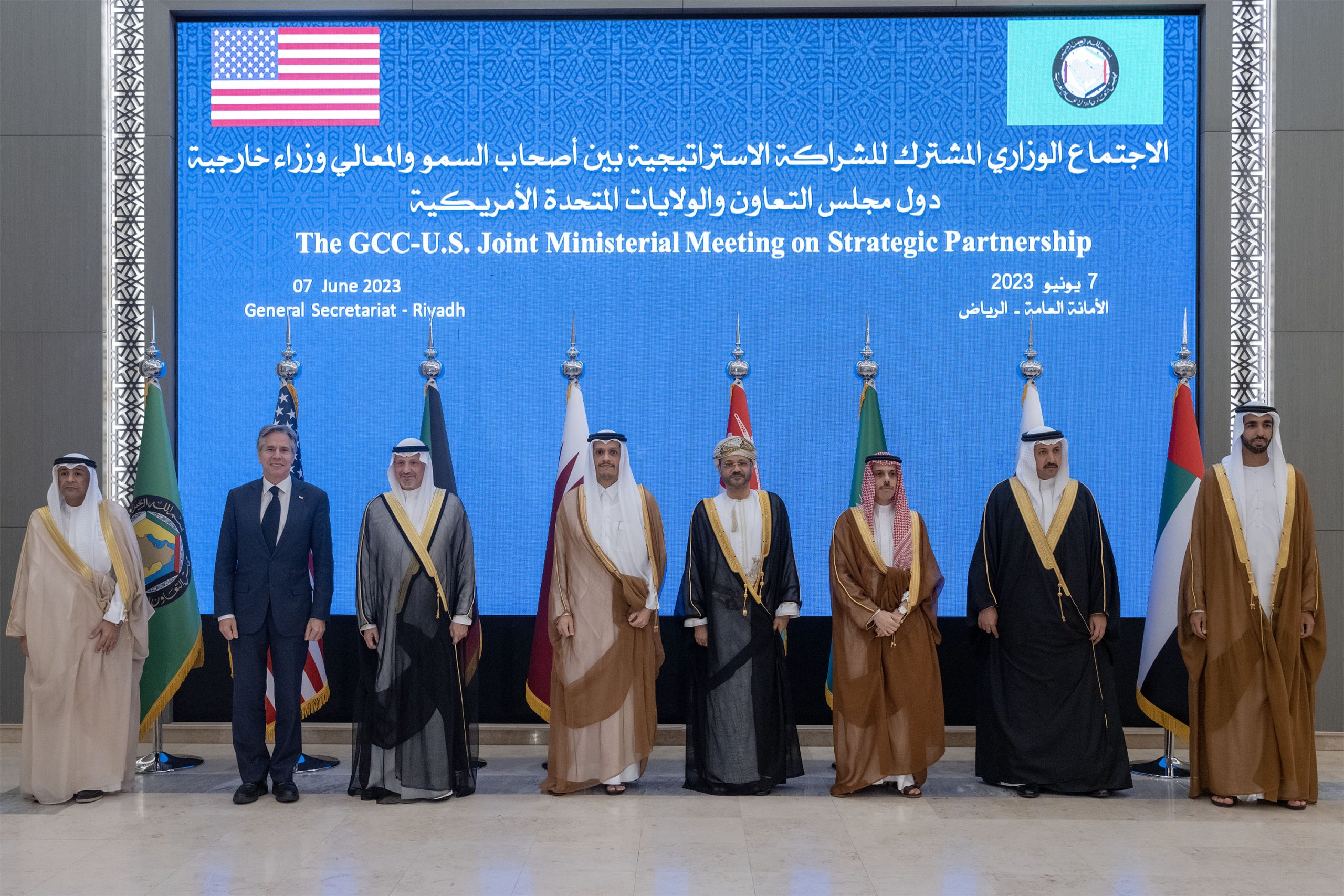More than 860 civilians have been killed since the beginning of the conflict in Sudan.
Foreign ministers from the Gulf Cooperation Council (GCC) and the United States stressed that Sudan’s conflict cannot be resolved militarily during a meeting in Riyadh on Wednesday.
“The ministers affirmed their conviction that no acceptable military solution exists that will settle the conflict. They called on the Sudanese Armed Forces and the Rapid Support Forces to silence their guns,” the joint communique said.
Qatar’s Prime Minister and Minister of Foreign Affairs Sheikh Mohammed bin Abdulrahman Al-Thani led Doha’s delegation at the meeting in Saudi Arabia, where US Secretary of State Antony Blinken was also in attendance.
Sheikh Mohammed and Blinken met on the sidelines of the meeting.
“They discussed the strategic relations of friendship and cooperation between Qatar and the US and prospects for their development, in addition to exchanging views on the most important current regional and international issues of common interest,” a statement by Doha’s foreign ministry said.
The GCC and US diplomats tapped into the latest regional and international developments, especially in Palestine, Yemen, Sudan, and Syria. All sides expressed their “grave concern” over Sudan’s ongoing conflict, which so far killed more than 800 and forced thousands to flee their homes.
Fighting between the Sudanese paramilitary Rapid Support Forces (RSF) and the Sudanese army erupted on 15 April.
On Sunday, Saudi Arabia and the US, the main brokers of previous ceasefires in Sudan, urged the warring sides to agree to and “effectively implement” a new truce.
“Responding to the latest crisis in Sudan, we’re continuing to push to silence the guns, to press for humanitarian access, to help the Sudanese people realise their demands for a transition to democracy,” Blinken said before the meeting in Riyadh.
According to Sudan’s Doctors’ Syndicate, more than 860 civilians have been killed since the beginning of the conflict, though the actual death toll is believed to be higher.
Regional issues
Commenting on the ongoing Israeli occupation of Palestine, the ministers “stressed the need to refrain from all unilateral measures that undermine a two-state solution and escalate tensions”.
The officials also called for the preservation of Jerusalem’s historic status.
“The Ministers also emphasised the importance of bolstering the Palestinian Authority and improving the everyday lives of Palestinians including through humanitarian assistance and efforts to bolster the Palestinian economy,” the statement added.
The meeting comes weeks after the Arab League reinstated Syria’s membership, ending a decade-long isolation of the Bashar Al Assad regime.
“The Ministers reaffirmed support for US and Coalition forces, who are working to achieve the enduring defeat of ISIS in Syria. Ministers further condemned all actions that threaten the safety and security of these forces,” the statement read.
Assad attended the Arab League’s this year’s summit, which took place in Saudi Arabia on 19 May. Qatar’s Amir Sheikh Tamim bin Hamad Al Thani left the summit prior to Assad’s speech.
The Gulf state has maintained its stance against normalising with the Assad regime despite the regional shift in positions regarding Syria.
In the joint statement, the GCC and US “stressed the need to create secure conditions for the safe, dignified, and voluntary return of refugees and internally displaced persons”.
Commenting on Yemen, the ministers expressed their support for a Yemeni political process “that results in a lasting end to the conflict”.
“They reaffirmed their support for Yemeni sovereignty, independence, unity, and territorial integrity and for the Presidential Leadership Council in Yemen and urged the Houthis to seize this opportunity and build on the past 14 months of calm to bring relief to millions of Yemenis,” the GCC-US meeting said.
Yemen’s conflict began in 2014 when the Iran-backed Houthi rebels took control of the capital, Sanaa.
The following year, a Saudi-led coalition intervened at the request of the internationally recognised government, triggering the worst humanitarian crisis in the world and internally displacing 4.5 million people.
In April, Saudi and Omani delegations held talks with Houthi rebel officials in the capital Sanaa as part of global efforts to bring an end to Yemen’s nine-year conflict.
This came after Saudi Arabia and Iran agreed to resume ties in March for the first time since 2016 following China-brokered talks.
The GCC and US officials welcomed the move, stressing “the importance of adherence to international law, including the UN Charter, by states of the region.”
Diplomats at the meeting also revealed plans to convene a meeting of the GCC-US cyber security working group later this year, the statement added.
It noted that the ministers will “explore the possibility of holding working groups later this year on military preparedness and training and streamlining the transfer of critical defense capabilities.”
“The ministers affirmed the importance of continuing periodic working groups to discuss defence issues and decided to hold another round of the GCC-US integrated air and missile defence and maritime security working groups later this year,” it said.







